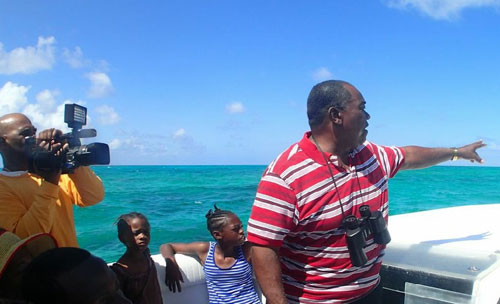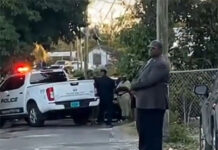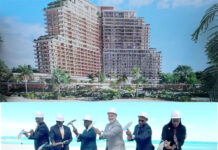
By Diane Phillips & Associates
Nassau, Bahamas – The Coalition to Save Clifton has launched a series of free water tours in an effort to highlight the country’s rich natural heritage and raise awareness about the many threats confronting it.
The tours, led by veteran social activist and CSC head Rev C.B. Moss, are designed to strengthen ties between local communities and the vital marine resources that surround them.
“If we know the worth of what we have, we will be more willing to fight for it,” Rev Moss said. “Many Bahamians don’t know the water, don’t value it. It is all around us, but we act like it isn’t there because it’s not in our consciousness.”
The tours highlight the ecological importance and economic potential of the Clifton Bay area, and demonstrate how these assets are being endangered by pollution, overfishing and unregulated development.
“There is a demand for a variety of water sports that Bahamians could offer this area – snorkeling and scuba diving on these beautiful reefs, parasailing, even surfing – the potential for Bahamians to make a living from this bay is limitless,” Moss said.
“And, some of the money generated could go to maintain the park itself, as we know the government is short of funds.
“Unfortunately, our political leaders, the people who can make this happen in an instant, are not that interested. Meanwhile, these opportunities are being destroyed right under our noses.”
Pointing out the industrial plants at Clifton Pier, Moss told tour participants that oil, gas and dangerous chemicals have been leaking into the bay for years thanks to a lack of proper oversight.
And, he said, construction projects have been allowed to alter tidal flows, stripping public beaches of sand. As the tour approached the northern coast of the bay, Moss pointed out one notorious example.
“That’s Nygard Cay,” he said. “All the construction you see was carried out without permission from government, and the beach has been artificially expanded.
“The problem is that the new structures have blocked the natural flow of sand into the bay, so Jaws Beach cannot be replenished. The public beaches of Clifton are fast becoming rocky shore, thanks to the fact that this beach, which is closed to you, is being expanded.”
Moss said environmentalists and social activists are calling on the government to bring an end to the pollution at Clifton Pier and enforce an existing order demanding that the work at Nygard Cay be reversed.
They also want Clifton Bay named a protected marine park, as was promised when the nearby land park was established in 2004.
“We cannot allow our heritage to be taken away without a fight,” he said. “I want you to talk to your friends and family, and spread the message. I want you to tell your representative that Clifton Bay belongs to all Bahamians and cannot be allowed to be destroyed for the benefit of a few.”
The more than 40 participants in one recent tour expressed amazement at the beauty of Clifton, and outrage over its slow destruction.
One woman said: “I had no idea how lovely it was out here. Having seen it, I can say that you definitely have another soldier in the fight.
“We cannot let all this beauty be destroyed, we have to become active.”







